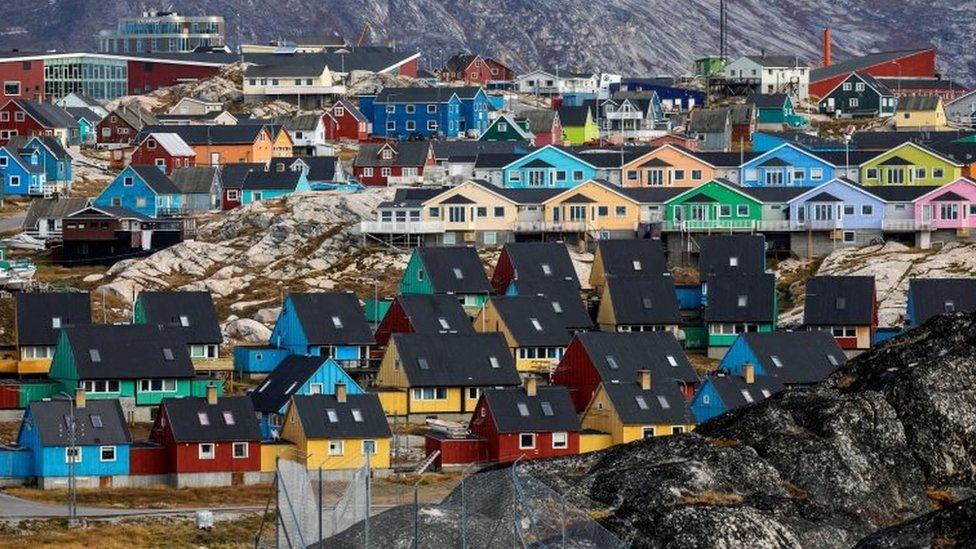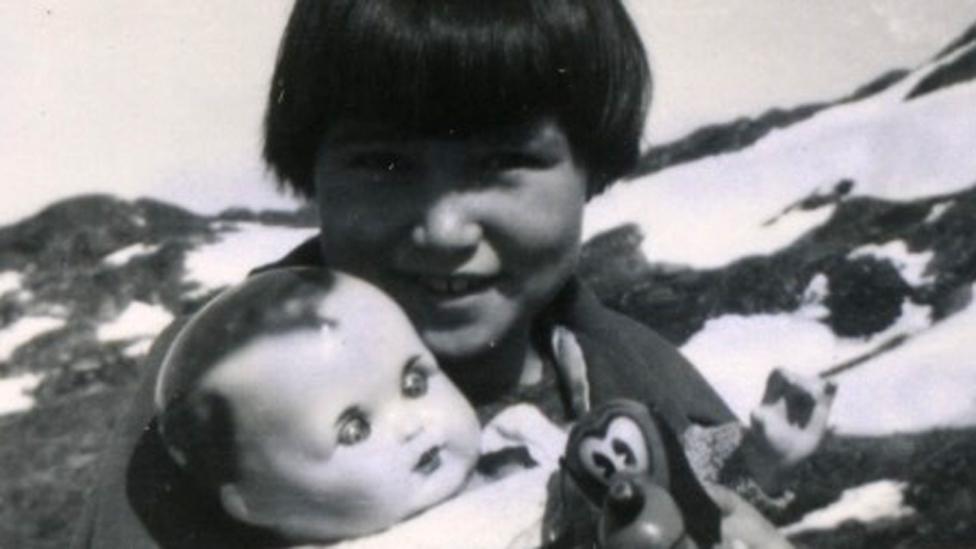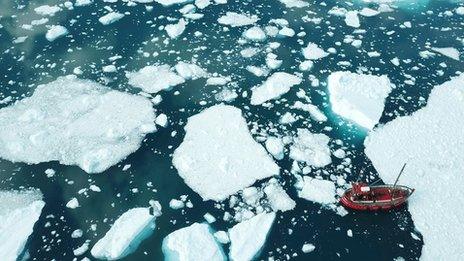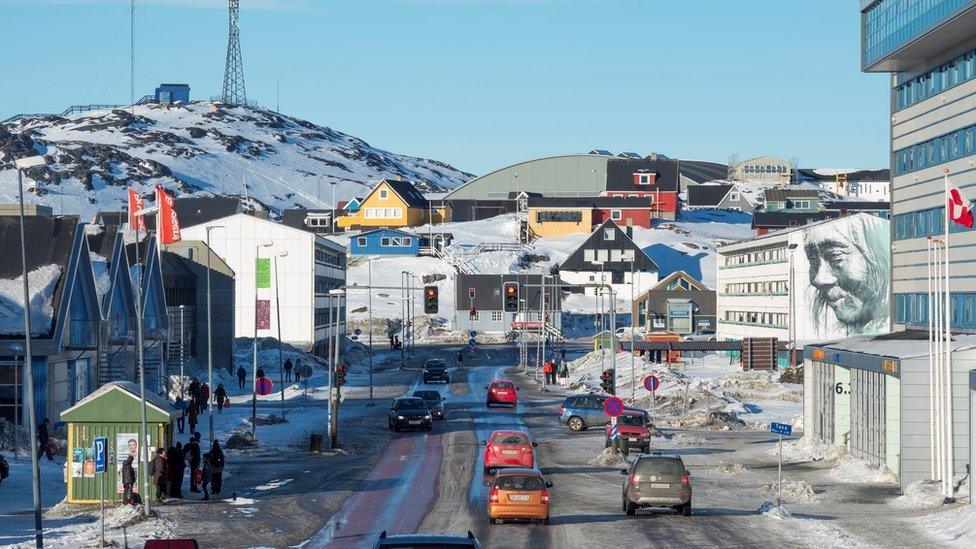Greenland's Inuit seek Denmark compensation over failed social experiment
- Published

Greenland is an autonomous territory within the kingdom of Denmark
Six indigenous Greenlanders taken as children to Denmark in a failed social experiment in 1951 are demanding compensation from the Danish state.
The Inuit, now in their 70s, are the surviving members of the group of 22 children who were removed from their homes to be educated as "little Danes".
When they later returned to Greenland, they were put in an orphanage, and many did not see their families again.
The six survivors each want £28,200 ($37,800), their lawyer says.
The Danish authorities have so far made no public comments on the issue.
Last year, Danish Prime Minister Mette Frederiksen formally apologised on her country's behalf.
"We cannot change what happened. But we can take responsibility and apologise to those we should have cared for but failed to do," she said.
One of the children, Helene Thiesen, who told her story to the BBC in 2015, said the apology meant everything.
Greenland is an autonomous territory within the kingdom of Denmark and relies on Copenhagen for management of currency, foreign relations and defence, as well as the provision of a large annual subsidy.
What happened to the children?
It was in 1951 when Danish authorities decided that one way to modernise Greenland would be to create a new type of Greenlander.
Helene spoke to the BBC in 2015
Teachers and priests were asked to identify children who could be re-educated and given a "better life" in mainland Denmark, and then return to be role models for Greenland-Denmark relations.
Many families were reluctant but some gave way, and in May 1951, the ship MS Disko set sail from Nuuk with 22 children on board.
Helene Thiesen, now in her 70s but seven at the time, said that her mother, who had been left alone with three children after their father's death, told her that Denmark was "just like paradise. You don't have to be sad".
On arrival the children were deprived of contact with relatives, had Danish-Greenlandic language difficulties and were placed in foster homes.
Helene only discovered why she had been taken away in 1996 when she was 52 years old, and she never rebuilt her relationship with her mother.
She said she had spoken to some of the other children at times and they "felt a sense of loss and a lack of self-belief".


- Published10 June 2015

- Published20 August 2020

- Published9 January 2020
